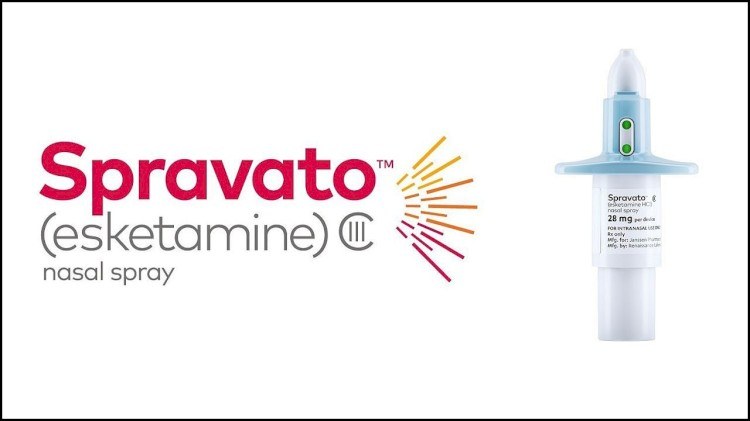
In February 2019, the US Food and Drug Administration (FDA) Advisory Committee approved SPRAVATO™ for use in adults with treatment-resistant depression (TRD). What is unique about this drug is that it contains the anesthetic ketamine in hydrochloride form (known as esketamine) and is a fast-acting nasal spray. Patients receive esketamine along with an antidepressant for treating TRD. But they don’t get the esketamine at their pharmacy and take it home ― it is administered in a clinical setting.
Esketamine treatment is a new approach to treating depression in terms of the type of drug, the delivery method, and the time it takes to provide relief to patients. In an interview with The Guardian, Dr. Walter Dunn, a member of the FDA Advisory Committee and professor of psychiatry at the University of California Los Angeles said, “This is really the first, and there are several in various phases of development, and over the next couple years you will see more coming out on the market.”
Is Esketamine a Psychedelic Drug?
Esketamine and its parent compound ketamine are antagonists of the NMDA (N-methyl-D-aspartate) receptor in nerve cells. Normally, the NMDA receptor binds the neurotransmitter glutamate. But when ketamine or esketamine blocks the receptor, glutamate can’t bind to it. This blocking prevents the movement of positively charged ions and the subsequent transmission of signals from the nerves. The psychedelic effects of compounds are known to be caused by their agonist or partial agonist binding to the serotonin 5-HT2A receptor.1,2 Ketamine has some affinity for 5-HT2A, but it also acts as an antagonist at this receptor so it would not cause psychedelic effects.
So technically, no, esketamine is no a psychedelic drug when studied at a cellular/receptor level. However, ketamine and esketamine can be called psychedelic drugs in terms of people’s subjective experiences.
Ketamine is known to cause feelings of dissociation, also called an out-of-body experience (because of this, ketamine is also a party drug called Special K). In turn, anywhere from 61% – 75% of esketamine users experience dissociation side effects such as distortions of time and space. In scientific studies, researchers use a variety of subjective terms called “emergence reactions” to describe the experiences their study subjects have after emerging from the anesthesia brought on by ketamine.3 Some researchers prefer the term “psychedelic” to “psychotomimetic” or “hallucinogenic” because “it allows for more flexibility in grouping together a disparate array of effects into a quantifiable and recognizable syndrome.” So, esketamine is a psychedelic drug to some researchers who study it on a behavioral level.
Conclusion
The anesthetic ketamine has subjective effects that researchers call psychedelic, as does the drug esketamine. However, ketamine and esketamine are antagonists of 5-HT2A receptor whose activation elicits psychedelic effects. As antagonists, they block the receptor so it can’t function normally. So, esketamine is and is not a psychedelic drug depending on the perspective.
